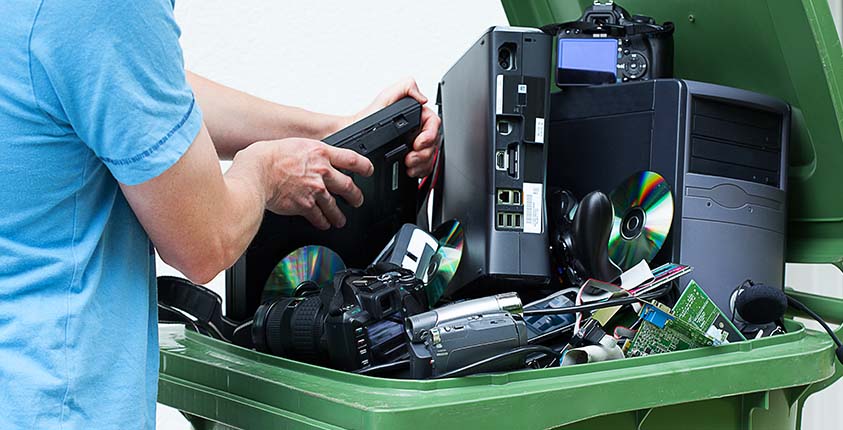Consultant’s Corner: Destroying Personal and Customer Data on Old Devices

Q. I bought a new printer and I want to get rid of my old one safely. My concern is that the hard drive has a lot of personal information on it for me and my customers. How can I be sure that when I hand it to a recycler they will destroy the data?
We don’t know how old your multi-function printer is or whether it has a hard drive, but assuming it does and you are concerned about the hard drive falling into the wrong hands after you have wiped or erased the hard drive according to the printer manufacturer’s instructions (check your user guide or other manual), then removing and destroying the hard drive would be the preferred solution. The following are discussions on how to properly dispose of printers that you may find helpful, the first of which explains:
“Some printers have internal hard drives or flash memory that store documents that have been scanned. This means that images of your pay stub, medical records, credit card statements, or any other sensitive documents you once scanned are stored in the printer’s memory and therefore retrievable by someone who knows where to look for it.
Because these hard drives are usually hard to find, they are usually not removed before a printer is resold or recycled. That can be bad news for you if your printer gets into the wrong hands.
If your printer is nearing the end or you are upgrading to a new printer, make sure you delete that important data off your old printer.
How do you get rid of your printer’s data? There are multiple ways.
- Unplug your printer for a while. This will delete data if there’s no local storage. Check your printer’s user guide to see how long to leave your printer unplugged until the data is removed.
- Clear the direct email function. If your printer has this feature, make sure to delete your password before getting rid of the printer.
- Wipe the disk drive. If your printer has a disk drive feature, use the wipe disk to make sure your data is not accessible by others.
- Destroy the hard drive. If you decide to trash a printer rather than reselling it, take it apart and find the hard drive. Remove it and hammer it. But remember, safety first. Make sure you wear those safety glasses.
Follow these tips and sell or recycle your printer with peace of mind, knowing that nobody will be able to retrieve your personal information.”
https://blogs.mcafee.com/consumer/goodbye-to-printer-data/
http://securitywatch.pcmag.com/privacy/320343-how-to-securely-dispose-of-a-printer
As to electronics recyclers, we would suggest using a local recycler who is part of the “e-Steward” network as discussed in the article below:
“If you opt to recycle it, keep in mind that some recyclers will simply take your old machine and ship it over to developing nations where children are often used to scavenge piles of e-waste looking for valuable components. To avoid contributing to this irresponsible practice, use a recycler that is part of the “e-Steward” network, meaning they don’t export to places like Pakistan or China, and they follow other high standards. Many of them also will reuse and refurbish electronics. The Electronic TakeBack Coalition offers tips for other ways to responsibly offload your electronics if one isn’t located near you.”
http://www.techlicious.com/how-to/how-to-safely-get-rid-of-an-old-computer/
You can search for a local e-Steward network recycler through the first website below:
http://www.electronicstakeback.com/how-to-recycle-electronics/
Got Business Questions?
Get unlimited online business consultation.
